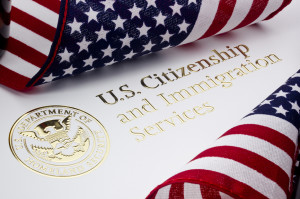 Marriage & Family Based Immigration Lawyer with offices in Arlington, Virginia:
Marriage & Family Based Immigration Lawyer with offices in Arlington, Virginia:
At the Law Office of Moona Shakil, we handle nearly all types of family based immigration and visa petitions including K-1 Fiancé Visa, K-3 Spouse Visa, as well as file immigration petitions such as the I-130 to petition for Alien Relative to sponsor children and parents of a US Citizen. We have over a decade of experience in filing Marriage and Family based immigration petitions for Visas and Green Cards to help assist bring over family members from all over the world. We have assisted thousands of individuals in bringing their family members from Mexico, China, Philippines, India, Pakistan, and many more. There are various non-immigrant visas which allow U.S. citizens to bring their family members to the US. We can help you explore all your options.
Two groups of family based immigrant visa categories, including immediate relatives and family preference categories, are provided under the provisions of United States immigration law, specifically the Immigration and Nationality Act (INA).
Immediate Relative Immigrant Visas (Unlimited): These visa types are based on a close family relationship with a United States (U.S.) citizen described as an Immediate Relative (IR). The number of immigrants in these categories is not limited each fiscal year. Immediate relative visa types include:
-IR-1: Spouse of a U.S. Citizen
-IR-2: Unmarried Child Under 21 Years of Age of a U.S. Citizen
-IR-3: Orphan adopted abroad by a U.S. Citizen
-IR-4: Orphan to be adopted in the U.S. by a U.S. citizen
-IR-5: Parent of a U.S. Citizen who is at least 21 years old
Family Preference Immigrant Visas (Limited): These visa types are for specific, more distant, family relationships with a U.S. citizen and some specified relationships with a Lawful Permanent Resident (LPR). There are fiscal year numerical limitations on family preference immigrants, shown at the end of each category. The family preference categories are:
-Family First Preference (F1): Unmarried sons and daughters of U.S. citizens, and their minor children, if any. (23,400)
-Family Second Preference (F2): Spouses, minor children, and unmarried sons and daughters (age 21 and over) of LPRs. At least seventy-seven percent of all visas available for this category will go to the spouses and children; the remainder is allocated to unmarried sons and daughters. (114,200)
-Family Third Preference (F3): Married sons and daughters of U.S. citizens, and their spouses and minor children. (23,400)
-Family Fourth Preference (F4): Brothers and sisters of U.S. citizens, and their spouses and minor children, provided the U.S. citizens are at least 21 years of age. (65,000)
How we can help you:
At the Law Office of Moona Shakil, an experienced senior attorney would help preparing your Marriage/Family based petition. Our immigration attorney would consult with you to discuss your options. Our mission is to provide prompt, high quality legal services to benefit the lives of our clients. We handle almost all types of immigration visas, and our attorneys understand that communication is a key to success. You need confidence that your lawyer understands your problem and is working with you to achieve results. Call us to find out how we provide superior service to our clients.



